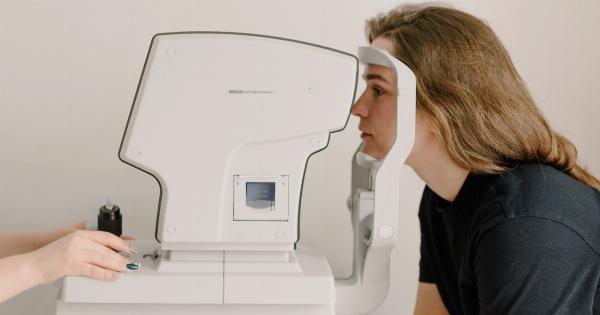Blood donation is a voluntary act of giving blood, a vital resource that can save lives. The process involves the collection of blood from a healthy person to be used for various medical procedures and emergencies.
Blood donors are ordinary individuals who selflessly agree to donate their blood to help others in need.
The Importance of Blood Donation
Blood donation plays a critical role in healthcare systems worldwide. It serves as a lifeline for patients in need of blood transfusions due to medical conditions, surgeries, accidents, or other emergencies.
By donating blood, individuals contribute to a sustainable supply of blood that enables hospitals and clinics to provide essential medical care to those in need.
Before Blood Donation
Before donating blood, it is essential to take certain steps to ensure a successful donation process. These steps include:.
1. Checking Eligibility
Prior to donating blood, potential donors must first check if they meet the eligibility criteria. Donors are usually required to be in good health, not have any illnesses that may transmit through blood, and meet age and weight requirements.
Additionally, some health conditions or medications may disqualify individuals from donating blood temporarily or permanently. It is crucial to consult with the blood donation center or medical professional to determine eligibility.
2. Hydrating Well
To promote a successful blood donation, individuals should ensure they are adequately hydrated in the days leading up to the donation.
Drinking plenty of fluids, such as water or fruit juices, helps maintain proper blood volume and makes it easier for medical professionals to collect blood.
3. Eating a Nutritious Meal
Having a well-balanced and nutritious meal before blood donation is crucial. A healthy meal can help prevent immediate potential adverse effects, such as dizziness or fatigue, during or after the donation process.
4. Getting Enough Rest
Donating blood requires a healthy and stable state of mind and body. It is important to get enough rest the night before donating blood.
Fatigue or lack of sleep can affect the donor’s overall well-being and may lead to discomfort during the donation process.
5. Avoiding Alcohol and Caffeine
Prior to blood donation, individuals should avoid consuming alcohol or caffeinated beverages, such as coffee or energy drinks.
These substances can potentially affect blood pressure and increase the risk of dehydration, making it more challenging to obtain an adequate blood sample.
During Blood Donation
The blood donation process typically involves a series of steps aimed at ensuring the donor’s safety and obtaining a sufficient blood volume. The following are the important steps during the blood donation:.
1. Registration and Screening
Upon arrival at the blood donation center, donors are required to register and provide basic information. This information includes personal details, medical history, and consent to donate blood.
Donors may also undergo a brief screening process, which involves a set of questions to determine eligibility and any potential health risks associated with blood donation.
2. Medical Examination
After registration and screening, donors undergo a medical examination by a qualified healthcare professional.
During the examination, the donor’s blood pressure, temperature, pulse, and hemoglobin level are measured to ensure good health and determine the suitability for blood donation.
3. Donation Process
Once deemed eligible, the donor is ready for the actual blood donation process. A healthcare professional will cleanse the donor’s arm, insert a sterile needle into a vein, and collect the required amount of blood.
The donation process usually takes around 10 minutes or less, during which the donor needs to remain still and relaxed.
4. Rest and Refreshments
After the blood donation is complete, donors are encouraged to rest for a short period and consume refreshments provided by the blood donation center. This helps the donor’s body recover and stabilize after the blood loss.
After Blood Donation
After the blood donation process, certain steps should be taken to ensure a smooth recovery and maintain overall well-being. These steps include:.
1. Rest and Rehydration
Immediately after blood donation, it is important to rest and allow the body to recover. Avoid engaging in strenuous activities or heavy lifting for a few hours.
Additionally, drinking plenty of fluids, especially water, helps replenish the lost blood volume and prevents dehydration.
2. Eating Nutritious Foods
Following blood donation, it is vital to consume a balanced meal that includes iron-rich foods. Iron plays a significant role in the production of new red blood cells, helping restore the body’s blood supply.
Foods such as lean meats, beans, leafy greens, and fortified cereals are excellent sources of iron.
3. Monitoring for Adverse Effects
Although blood donation is generally safe, it is essential to monitor for any potential adverse effects. Common side effects may include dizziness, lightheadedness, or bruising at the donation site.
If any unusual or severe symptoms occur, it is recommended to seek medical advice promptly.
4. Following Post-Donation Guidelines
Blood donation centers often provide post-donation guidelines to donors. These guidelines typically include avoiding strenuous exercises, refraining from smoking for a certain period, and keeping the donation site clean and bandaged until fully healed.
It is important to adhere to these guidelines to ensure a successful recovery.




























